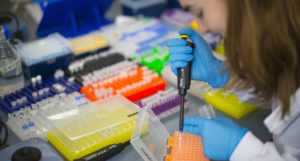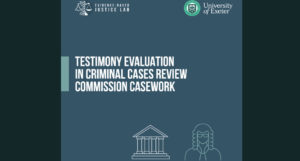People getting divorced sought for study of AI technology offering vital advice and support

Photo by Cottonbro Studio
A study into how artificial intelligence (AI) can help people getting divorced is looking for participants who wouldn’t normally use technology to help with issues in their lives.
This research from the University of Exeter is being conducted ahead of the development phase, so that the information can be used to make sure that the technology is efficient and appealing to as many people as possible, not just those who already use technology regularly.
Every year, almost 10 per cent of married couples are in the process of getting divorced (9.3 per cent in 2021) and 41 per cent of all marriages end in divorce, with around one in five ending before the 10th anniversary. Despite this, since 2013 legal aid has been unavailable for most private family law issues, including almost all cases of divorce. With legal aid for divorce available to very few people, many are no longer able or willing to hire a solicitor to help them. This can result in some walking away from a divorce without everything they are entitled to, which can have a financial and emotional impact on them and often their children – an issue which disproportionately affects women.
Psychology PhD student, Mustafa Biber, from the University of Exeter said: “While it’s understandable that someone going through a divorce would like to speak to someone in person for advice, unfortunately since the change to legal aid many can’t afford to go to a solicitor – especially in a cost-of-living crisis. Lots of people wouldn’t consider using AI for advice about their divorce, while others may not have access or the right skills. This digital divide is often ignored when developing technology and must be fixed retrospectively. We want to avoid that by discovering and understanding any potential barriers before development begins.”
Project supervisor, Professor Miriam Koschate-Reis, from the Institute for Data Science and AI at the University of Exeter: “For many of us AI-driven service technologies have become a normal part of our lives, from comparing insurance quotes to planning a journey online – but not everyone has the access, ability, or desire to use these technologies. Lack of trust, privacy concerns, and the complexity of technology can affect engagement, with older people, minority groups, and those on lower incomes often the most impacted. We hope this study will help us to identify the physical and psychological barriers people face around service technology so they can be addressed from the outset.”
Professor Anne Barlow from the University of Exeter Law School said: “We know that people already negatively affected financially are also more vulnerable to getting a worse deal from divorce, because they can’t afford legal help and they often don’t know how to access important information from a reliable source. This is a critical situation which can have long-term financial consequences for people getting divorced and their families.”
The researchers are part of the University’s Institute for Data Science and Artificial Intelligence (IDSAI), a collaboration of researchers from across the disciplines at the University of Exeter – including experts from the Departments of Law, Computer Science, and Psychology.
In total, the PhD study requires 500 participants who are going through divorce or separation. Half of those will already be using online sources and are engaged with technology, while the other half will be people who would not typically use technology for support with something such as getting divorced. Participants need to be UK residents and the anonymous survey will take around 10 to 15 minutes to complete. Participants will not be asked to provide any personally identifying information and any information they do provide will be kept confidentially in a password-protected file space, which can only be accessed by the project researchers. A donation of £2 will be made on behalf of each participant to a charity of their choice from the following – Mind, Shelter, The Trussell Trust, Young Minds.
Participation in the study is possible online or via post. The online survey can be accessed here: http://ex.ac.uk/d7p
A paper survey with return envelope can be requested by calling Freephone number: 08000982616



